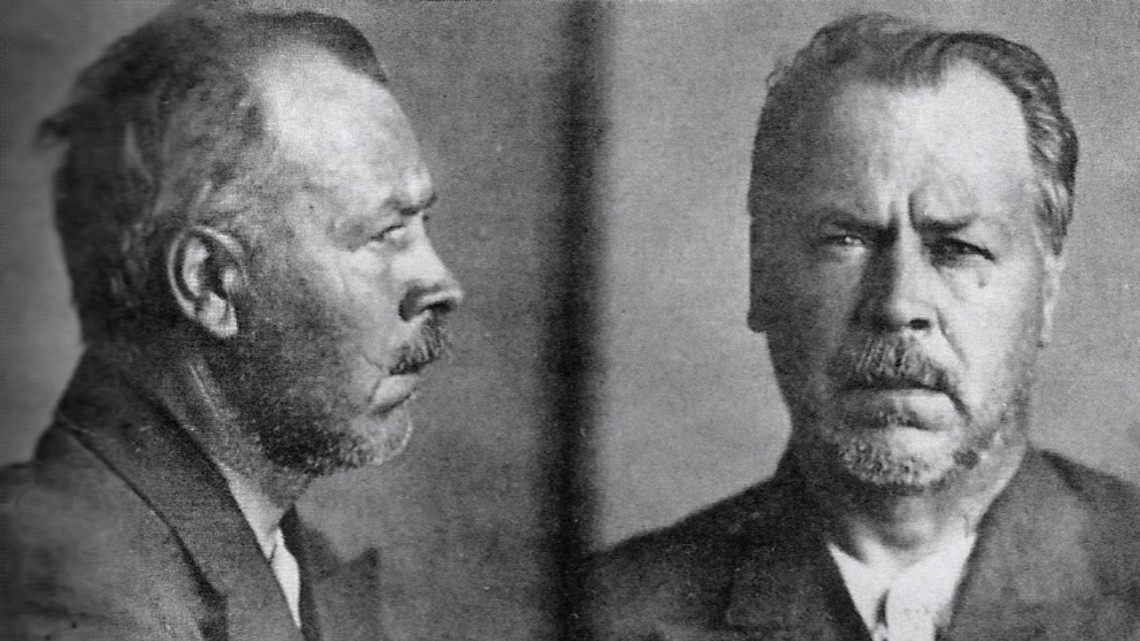
A mugshot of Nikolai Vavilov.
Exhibit honors Soviet plant pioneer
By Jose Perez Beduya
Soviet plant geneticist Nikolai Vavilov gathered thousands of specimens from around the globe with hopes of cultivating crops to eradicate hunger – and yet he starved to death in a prison cell.
His offense: Daring to criticize the flawed agriculture sponsored by Josef Stalin, which led to famine and the death of millions in the Soviet Union in the 1930s.
A new Mann Library exhibit, “Cultivating Silence: Nikolai Vavilov and the Suppression of Science in the Modern Era,” pays tribute to the pioneering plant scientist and serves as a reminder of the threat of political censorship and persecution. The exhibit runs through January 2022.
“Vavilov essentially sacrificed his life for the belief in scientific accuracy and did everything in his power to stop famine in Russia,” said Karl Rozyn, exhibit designer and coordinator, who planned the exhibit with Michael Cook, Mann Library’s head of collections.
Spread out in display cases in the library lobby, the exhibit shows Vavilov as an internationally renowned pioneer of plant genetics who led expeditions to what he identified as historical origins of cultivated plants. With his collected specimens, Vavilov established a seed bank in Saint Petersburg, Russia, which was the largest in the world at the time and still exists today.
The exhibit also traces the political climate of the early Soviet Union, the rise of Stalin, and the spurious science espoused by biologist Trofim Lysenko, head of Soviet agriculture in the 1930s, who masterminded the persecution of Vavilov and other scientists critical of his programs.
Vavilov’s 1932 visit to Cornell is a focal point of “Cultivating Silence,” featuring pictures and documents from the Sixth International Congress of Genetics, held at the university. Of special interest are a set of prints given by Vavilov to Cornell pomologist Richard Wellington, depicting wild apples and pears of central Asia and the Caucasus.
“He brought them to Cornell because he knew his fortune was turning, and he could already see the writing on the wall,” Cook said, adding that the visit to Cornell was the last trip Vavilov made outside of the Soviet Union before he was imprisoned.
The prints are now part of Mann Library’s Special Collections, and they can also be viewed online at the Biodiversity Heritage Library, a consortium of institutions dedicated to sharing open-access resources on the life sciences.
Complementing the exhibit, Mann Library is displaying books by and about Vavilov and inviting viewers to also visit the Cornell University Library webpage about his life and work.
Jose Perez Beduya is staff writer, editor and social media coordinator for Cornell University Library.
Media Contact
Get Cornell news delivered right to your inbox.
Subscribe
